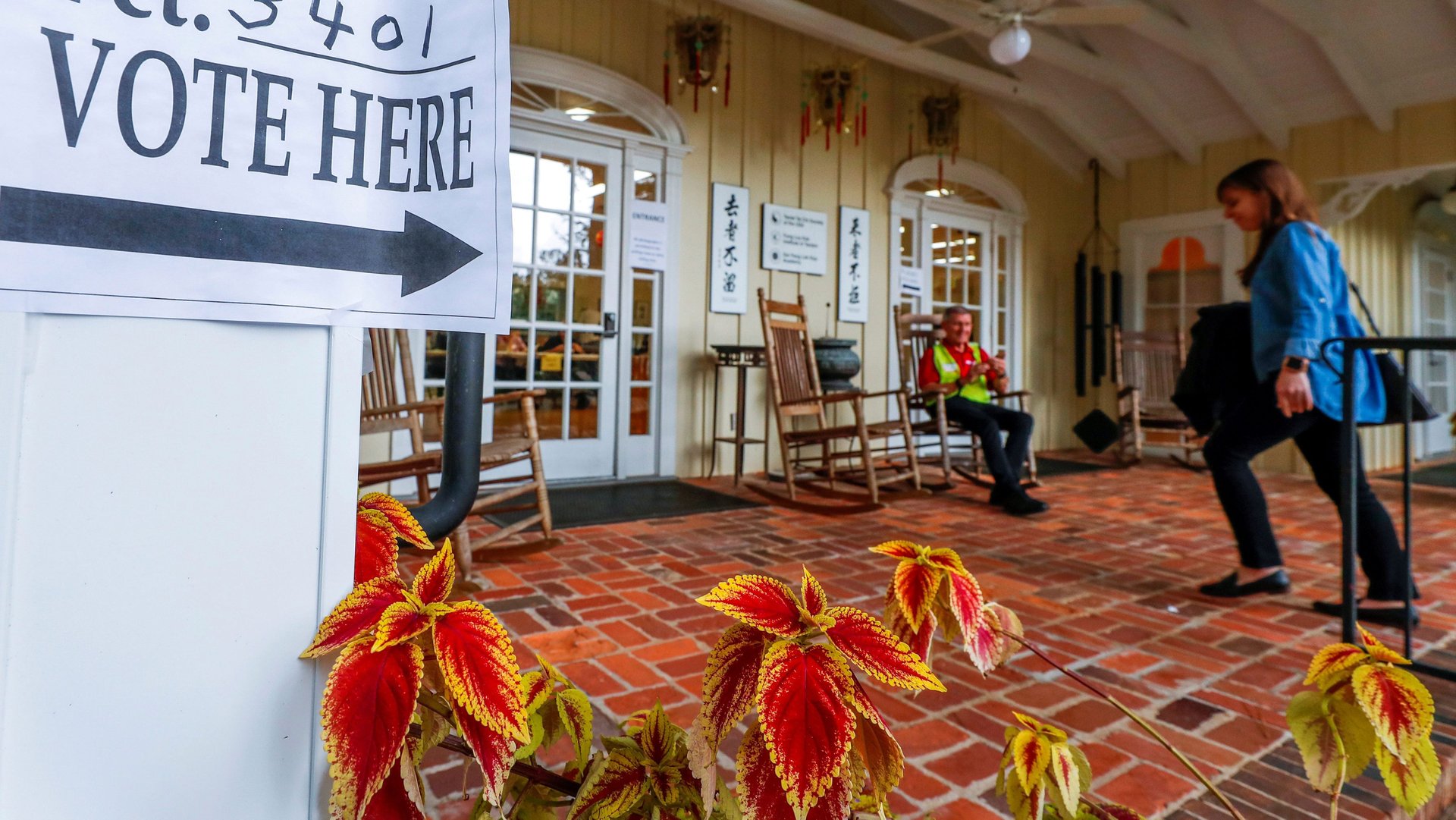Why is Florida so bad at elections?
Updated Nov. 9 at 9:00am EDT


Updated Nov. 9 at 9:00am EDT
Florida races for governor and the US Senate that appeared to have been decided on election night are now being declared uncertain instead, as new votes are tallied up and discrepancies discovered across the state. In each case, the Republican had initially appeared to have won a race now seen as too close to call.
Andrew Gillum, the Democratic mayor of state capital Tallahassee who had conceded the race for governor, reversed course the afternoon of Nov. 8 as the count narrowed between him and Republican opponent Ron DeSantis.
Just a handful of Florida counties have tallied up the provisional ballots given to voters who don’t have IDs or don’t appear on the register where they voted. That is also the designation for absentee ballots mailed from overseas. The governor’s race is within the 0.5% trigger for a machine recount, with DeSantis leading 49.61% to Gillum’s 49.17% as of Friday morning (Nov. 9).
Provisional ballots may play a role in the final turnout of the Senate race too. Bill Nelson, the Democratic incumbent, lags Republican challenger Rick Scott by 15,068 votes as of Friday morning (Nov. 9), out of more than 8 million cast, within the 0.25% trigger for a hand recount that could take days or weeks. And in the hard-fought race for the commissioner of agriculture, the Democratic candidate just pulled ahead by a few thousand votes, after her Republican opponent declared victory on Nov. 6. (You can find the latest vote counts here).
It’s enough to give anyone old enough to remember the election of George W. Bush flashbacks. The Republican was controversially elected over Democratic rival Al Gore in 2000 on the strength of just 537 votes in Florida, after a 35-day recount ultimately hinged on “hanging chads,” perforated paper punch-outs.
Florida voting is big, messy, and complicated, with a patchwork of aging systems, and often fractious relationships between state, county, and local officials in charge. The state of 21 million has a highly mobile, economically and racially diverse population that is truly “purple”—voters overall don’t lean either Republican or Democratic, which is why it is so important in the presidential race. (Any candidate who gets the edge captures all 29 electoral college votes that Florida has.)
All these factors came into play this midterm election, in myriad ways.
Broward, its second-most populous county behind Miami-Dade has a long history of votes issues and ballots being destroyed in a voting system that was open to Russian hacking.Polls were put inside a gated community in one location, and voters who didn’t live there weren’t allowed in without ID, even though you don’t need one to vote. There’s a mysterious gap between votes cast in Broward for Governor and Senator, and someone found a sealed box of “provisional ballots” in a local elementary school.
Candidate Scott filed a lawsuit against the Broward supervisor of elections, alleging that the “lack of transparency raises substantial concerns about the validity of the election process.”
Meanwhile, the statewide online voting registration system crashed as Hurricane Michael approached last month and the state purged an usually high number of voters, 7%, from December 2016 until September 2018, up from just 0.2% in the two years before the 2010 election.
The various factors have all added up to where we are now, with three statewide elections hanging in the balance.
In a sign of the contentious political relationships at work, rather than offering citizens reassurance that state officials are doing everything they can to straighten things out, Marco Rubio, Florida’s Republican senator, is now accusing Democrats of planning to steal the election:
So is the US president.